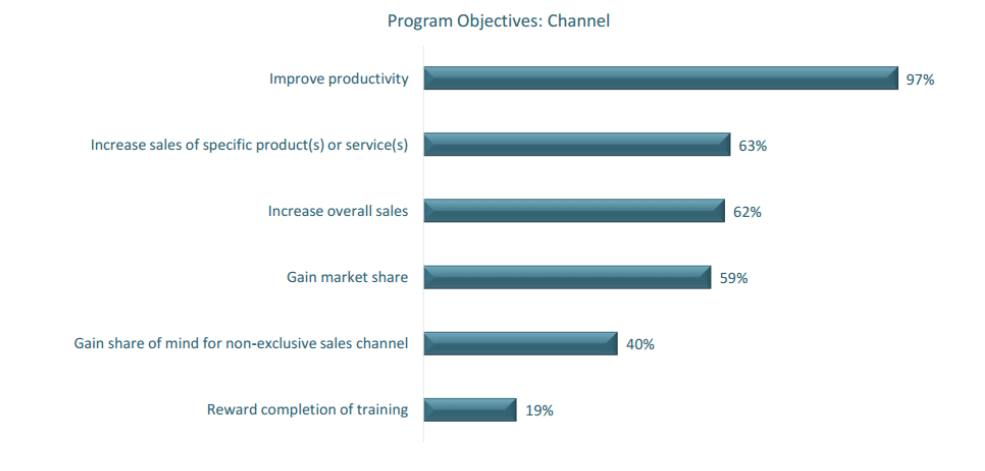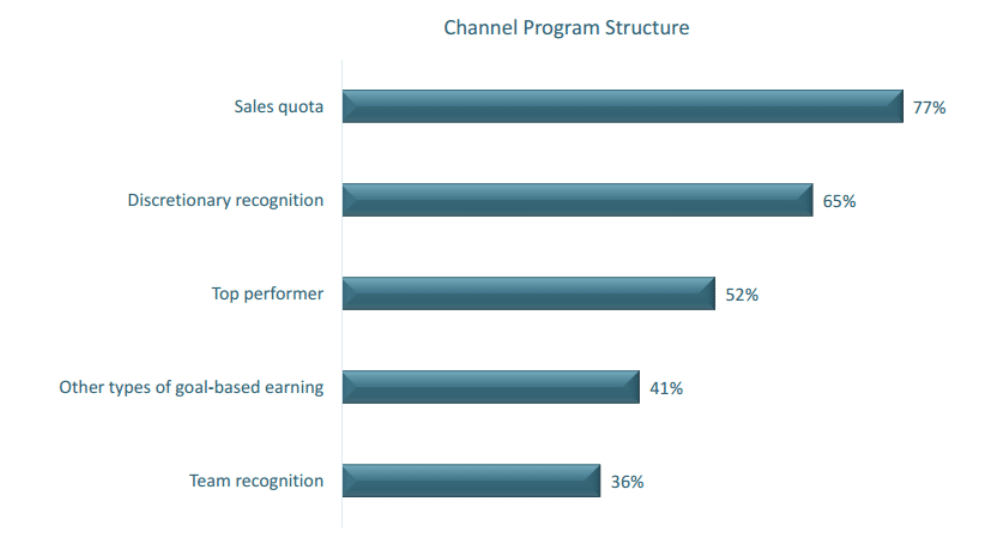Manufacturers should incentivize these partner behaviors
One important point when thinking about engaging channel partners (distributors, dealers, manufacturer reps) is personalization. Expecting everyone to exhibit the same behavior, or trying to stimulate everyone using the same incentive, is not advisable.
Engagement programs need to do their very best to escape the ‘single behavior’ trap, i.e., purely incentivizing channel partners to sell more. They should also avoid incentivizing activities which don’t generate a stronger relationship between channel partner and company.
According to the Incentive Federation’s Incentive Industry research, the main reason manufacturers implement a channel program is to improve productivity, which almost all respondents said was a major aim. Other significant motivators included increasing sales of specific products – at 63%, and increasing overall sales – at 62%.






